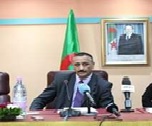
1ère journée d’étude (WEBINAIRE) sur
L’économie circulaire et sa contribution à l’entreprenariat vert afin
d’atteindre d’ici 2030 les objectifs de développement durable.
LE 21/11/2021
Les communications
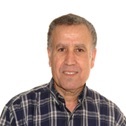
MOHAMMED BEDROUNI
Vice President Membership
Algerian American association for science, technology, and entrepreneurship
Entitled / Titre
(En) Why entrepreneurship in Algeria and Why now?
(Fr) Pourquoi l’entrepreneuriat en Algérie et pourquoi maintenant ?
Biography / Biographie
(En) |
Présentation en vidéo
⇓
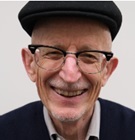
Professor David Ness,
University of South Australia
Entitled / Titre
(En) Entitled : Overcoming Limitations of the Circular Economy in Entrepreneurship and Achieving the SDGs” The Circular Economy (CE) is seen by many as a panacea for many kinds of environmental and societalchallenges, including the dramatic reduction of GHG emissions. But to be effective, it needs to be integrated with other policies, programmes, and actions, especially those directed at attaining the Sustainable Development Goals (SDGs). In addition, entrepreneurs should be supported to apply CE principles in finding innovative solutions at a practical, inclusive community level, with multiple societal benefits. |
Entitled / Titre
(En) BiographyDr David Ness is Adjunct Professor, UniSA STEM, University of South Australia, with a background in architecture, urban and infrastructure planning, and strategic asset management. He conducts research on fair, sufficient, and circular resource use, and was awarded the Arup 2017 Global Research Challenge to adapt the circular economy to the built environment. David has also developed conceptual models on ‘doing more with less’, delivering more services with less resource consumption and less cost, involving integrated infrastructure systems and new business models such as product-service systems. He heads ‘Ecological Development Union International’, a not for profit international association that seeks to integrate environmental improvements with socio-economic development in emerging economies of Asia/SE Asia. Within the context of the SDGs, the Paris accord on climate change, and achieving global equity, David examines ways in which wealthier societies may dramatically ‘shrink’ their absolute resource consumption and Greenhouse Gas emissions, while redistributing resources and investment to enable the disadvantaged to improve services, shelter, and infrastructure – thereby striving for global and regional rebalancing and equity. He has advised UN ESCAP and UN Habitat on ‘green growth’ and sustainable, integrated, and inclusive infrastructure, led a training course at the International Urban Training Centre, and evaluated a major UN clean environment program involving 60 cities across the Asia Pacific. David was lead researcher on the project ‘Learning from Regional Climate Analogues’ for National Climate Change Adaptation Research Facility (NCCARF), and has been a Chief Investigator (CI) on ARC research projects. He has authored over 100 publications, including ‘The Impact of Overbuilding on People and the Planet’ (2019), ‘Transforming Rural Communities in China and Beyond’ (2015), and co-edited ‘The Green Economy and its Implementation in China’ (2011).(Fr) Dr. David Ness, Professeur Associé, UniSa STEM, Université Sud Australie avec une expertise dans la gestion stratégique des Biens. Il a conduit des recherches dans l’utilisation de ressource circulaire qui a été couronnées par le développement d’un modèle conceptuel pour livrer plus de services à moindre consommation en ressource et coût. |
Présentation en vidéo
⇓
Jean-Claude BOLDRINI
Maître de conférences. Chercheur au LEMNA
IAE Nantes – Économie et Management
Entitled / Titre
(Fr) BM3C2 : un modèle d’affaires multi-acteurs, multi-niveaux, circulaire et collaboratif pour la transition vers l’économie circulaire |
Biography / Biographie
(En) |
Présentation en vidéo
⇓
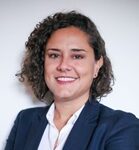
Mme Milene PACHECO
Experte en développement industriel à l’ONUDI
Entitled / Titre
(En) The economic benefits of circular and green economic projects
Les retombées économiques des projets économiques de tendance circulaire et vert.
Biography / Biographie
Biographie |
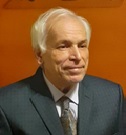
Pr. Dr.Ing. Kamal MOHAMMEDI
Entitled / Titre
(Fr) Intégration de l’Economie Circulaire dans la Stratégie de développement Bas Carbone à Long Terme de l’Algérie. |
Biography / Biographie
(En) |
Présentation en vidéo
⇓
Amina YEKHLEF
Experte en Education et Formation
Entitled / Titre
(Fr) Enseigner l’économie circulaire à l’école : l’exemple de la Finlande |
Présentation en vidéo
⇓
Karim DJEDI
Expert ei ingénieur en au sein de AMENHYD spa.
Entitled / Titre
(Fr) Nos solutions pour contribuer à la transition à l’économie circulaire |
Biography / Biographie
(Fr) |
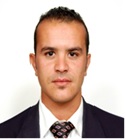
Tewfik SADOUNI
Docteur en sociologie de l’environnement
Entitled / Titre
(En) Environmental entrepreneurship and foresight in the process of its development. Vision for a consultation process |
Biography / Biographie
(En) |

